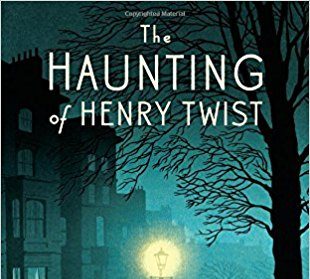Carolyn Percy reviews Rebecca F. John’s The Haunting of Henry Twist, a fresh take on historical fiction that explores a haunting which is all too real.
London, 1926. In the pause between the first and second world wars, the city briefly belongs to the Bright Young Things, whose outlandishly lavish parties fill the nights and gossip columns with light and laughter. Henry and Ruby Twist, newly married and deeply in love, live similarly in their own bubble of happiness, the birth of their first child imminent. Then, one morning, on her way to meet a friend, Ruby is knocked down by a bus. Doctors manage to save her unborn child but not Ruby – and so the bubble is popped. Racked with guilt and grief, Henry becomes a virtual shut in, only taking his daughter out at night for fear she’ll be taken from him. Until, at his most vulnerable, he crosses paths with a man named Jack Turner.
This apparently amnesiac begins to take up more and more space in Henry’s thoughts – an answer to his ever-increasing loneliness? But who is Jack Turner? Is he really what he claims to be? And can their relationship – whatever it is – last when there are those who want to tear them apart?
Despite the ‘haunting’ in the title of Welsh author Rebecca F. John’s debut novel, this is not a ghost story – at least, not in the traditional sense. Henry isn’t haunted by strange phenomena or apparitions but his own human frailties: recurring memories of the first world war, the grief of losing Ruby, the fear that – in a time where the concept of a single father is an unthinkable one – his daughter will be taken away from him; the crippling loneliness this engenders and his growing obsession with Jack. Other prominent characters are the Twist’s close friends Matilda and Grayson Steck. Both are haunted by their failure to conceive and Matilda’s feelings for Henry, which lead them to take actions that will threaten to tear them apart as well as Henry and Jack.
Whilst all the characters are well drawn and interesting to varying degrees, it is Matilda who is particularly so: someone who is never satisfied even when she has what she thinks she desires (the grass is always greener, after all) but is not quite self-aware enough to realise this. Consequently, she is the closest the novel has to antagonistic force. Though her actions are more selfishly motivated than outright malicious. She will almost certainly test those with little patience or tolerance for “unlikable characters”, and whilst the debate around this subject – should authors endeavour to make their characters likable – is a fraught and highly subjective one, it is this reviewer’s opinion that such complex characters often make a richer and more rewarding reading experience, and that more detrimental to a reader’s enjoyment are characters whose actions aren’t understandable, seeming to contradict their nature in order to progress the plot. Whether you end up liking or loathing Matilda, Rebecca F. john always makes sure that her actions – and those of the rest of the characters – whether they are logical or not, come from a place of understanding.
The publisher suggests that The Haunting of Henry Twist will appeal to fans of Sarah Waters and Sarah Perry, which is not a bad comparison, and fans of those authors may find much to like. But it should also appeal to those who like interesting historical fiction as well as those just looking for something different.
A moving tale set in a period that isn’t seen that often found in modern historical fiction, tackling subjects that historical fiction doesn’t often tackle.
The Haunting of Henry Twist is available now from Serpent’s Tail











